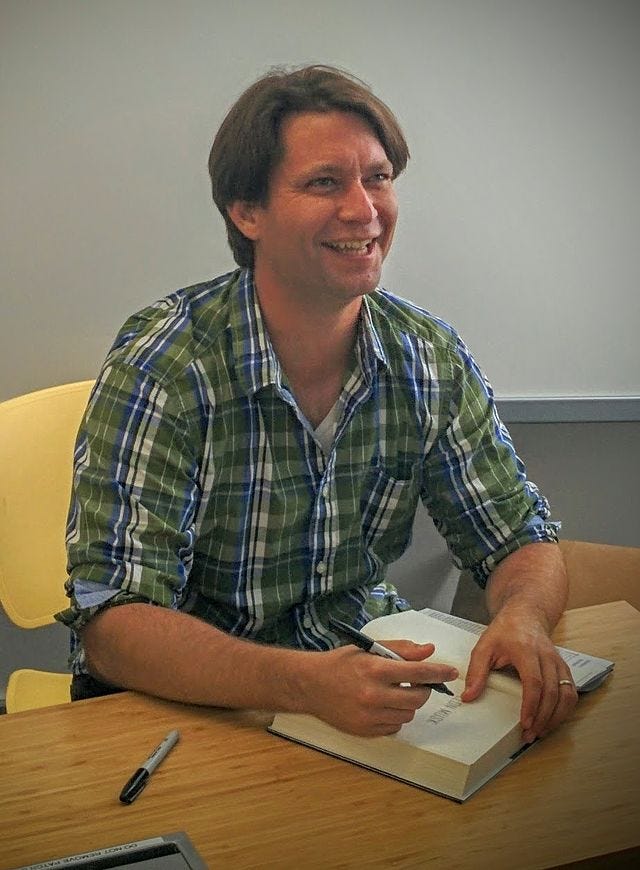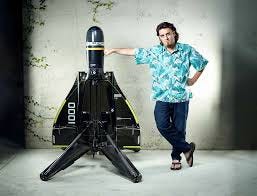Fireside Chat with Ashlee Vance
Excerpts from an event hosted at the Stanford University Aeronautics and Astronautics department.
Ashlee Vance is an award-winning journalist, author, and filmmaker who covers technology and Silicon Valley. He's best known for his 2015 biography Elon Musk: Tesla, SpaceX, and the Quest for a Fantastic Future. Vance has also written When the Heavens Went on Sale, a book about the rise of the commercial space industry and co-produced the documentary Wild Wild Space. His work has been featured in The New York Times, Bloomberg Businessweek, The Economist, Fortune, Wired, and The Wall Street Journal. He runs his own media company called Core Memory in Palo Alto (go subscribe to his Substack!)
We had Ashlee visit the Stanford Aero/Astro department early in June for an informal fireside chat. The talk was moderated by The Overview’s Anshuk Chigullapalli and Tycho Bogdanowitsch (who previously contributed to the Overview on this podcast). Below, we present a shortened, edited version of our conversation. We went through a lot of fascinating topics such as:
NASA’s budget cut, Elon-Trump feud, and Jared Isaacman’s nomination cut
ULA
Commonalities between aerospace founders
Surprises from investigating SpaceX and Rocket Lab
Current aerospace and defense startup landscape
Lessons for students and early career folks
Astra and Chris Kemp
Space sector trends
Europe’s aerospace landscape
Enjoy reading!
Anshuk: Thanks for coming, everybody. Please welcome Ashlee Vance!
Tycho: Let’s start with the elephant in the room. It’s been a wild couple of weeks—NASA’s budget was slashed, Jared Isaacman’s NASA nomination was withdrawn, and now Elon Musk and Donald Trump are publicly feuding. Any thoughts, or behind-the-scenes info, on what’s going on?
Ashlee: Well, first of all, thank you all for organizing this. Yeah, where to begin? I think this falling-out was inevitable. I was surprised that Elon and Trump’s relationship lasted as long as it did. I think Elon and Trump wanted to get things out of each other for some time, and I always sort of thought pretty quickly after the election it would fall apart, just because both want to be the center of attention. I was surprised when all those early stories were coming out where people were saying Trump was Elon’s puppet, and Trump seemed to tolerate that stuff.
I know some stuff's been reported, which I know is true. Elon physically shoved the Secretary of the Treasury, Scott Bessent. As much as Elon was on this mission, ultimately, he gets very fixated on what he wants, and so I'm sure he was rubbing people the wrong way. Something fractured that relationship pretty badly and in a more dramatic fashion than I thought.
The Jared Isaacman stuff, I think, is really sad. I think that was NASA’s maybe last chance to stay relevant or become relevant again. He's like a pretty principled guy who had the right energy. He's not a SpaceX lackey, he's not an Elon lackey. I think he's a pretty independent guy, and this was just Washington politics at its worst. This is like the same thing that's been happening to NASA. Anyone who has read my books knows that I hate Richard Shelby - he was doing the same sort of stuff for decades. He was just looking out for Lockheed Martin and Boeing at the expense of the bigger picture. I don't have tons of insight beyond some of the stuff that's been reported, but curious to see how long this goes on.
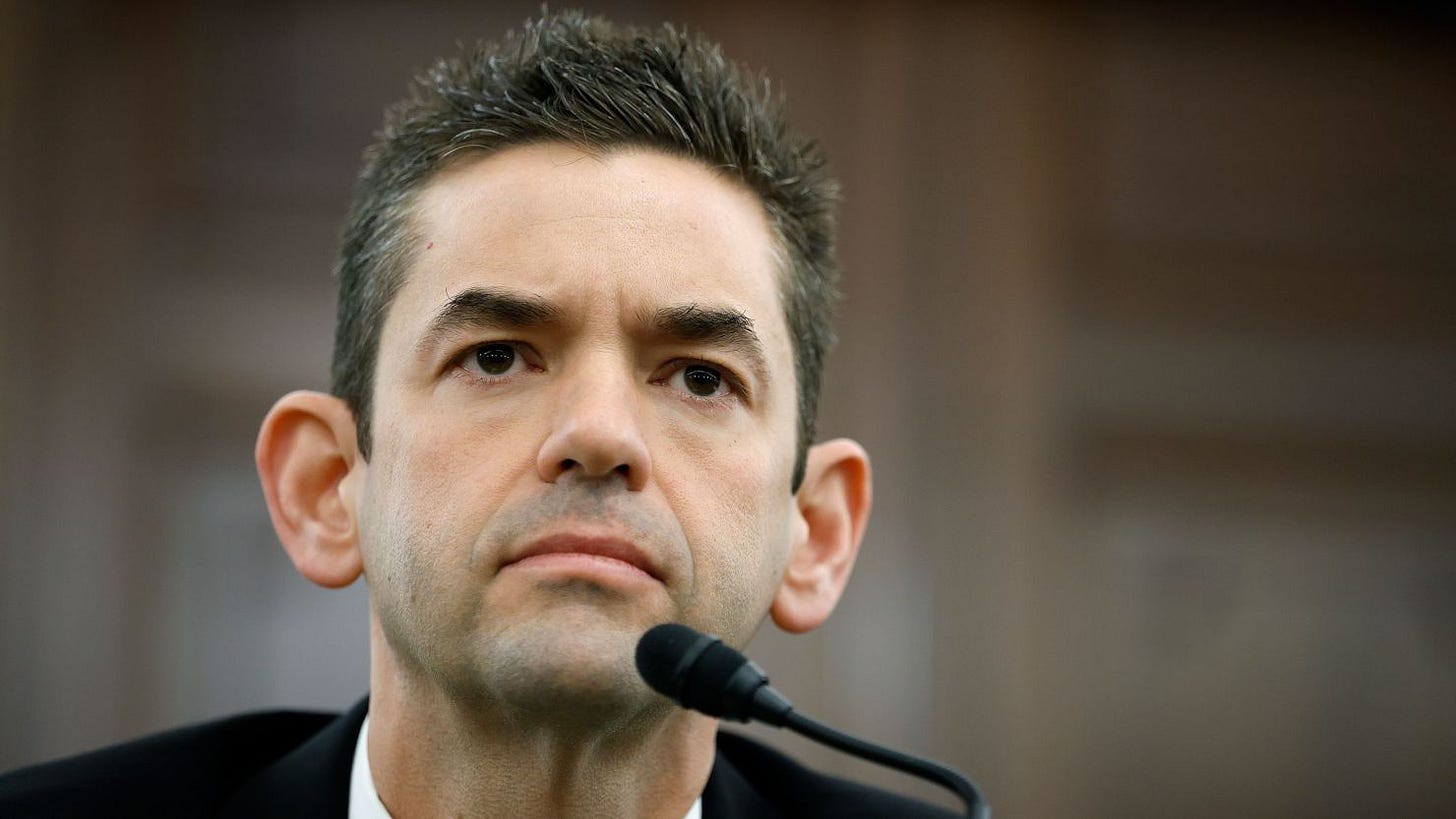
Tycho: What can commercial space companies do now? Just wait it out?
Ashlee: I don't even know if that's as much of a problem now, you know? SpaceX has turned things in a pretty dramatic direction. Elon being out of favor is probably gonna push more money to Rocket Lab and maybe Blue Origin. Since Richard Shelby retired, I feel like the tide has turned. A good indicator is that ULA is trying to sell itself. So yeah, I wouldn't worry about commercial space too much. There's plenty of opportunity.
Anshuk: Quick follow-up, any idea who ULA is going to sell to?
Ashlee: It’s tricky. Blue Origin would have been the most obvious choice last year, but they are now hitting their stride. The question is, how much value does ULA necessarily bring? Launch is a horrendous business. Before, you used to be a rocket company or a satellite company, and now you want to be a space company. Rocket Lab is making huge chunks of the satellite buses, getting into solar panels, everything. SpaceX does the same, with Starlink. All the rocket companies are going that way, and I think ULA is sort of disadvantaged in that. You're just buying what, like, 10 or 11 launches a year. And they put themselves up for sale, like, what, 18 months ago? It’s a tough spot.
Anshuk: Let’s move to a different set of questions. You spent a lot of time with Elon, you spend time with Peter Beck, with Chris Kemp, and many others who are big founders and industry leaders in the space industry. Any commonalities between them that you think young founders should look into?
Ashlee: Over the past two decades, out of the many rocket startups that have emerged, only SpaceX and Rocket Lab have truly stood out. Despite the U.S. having more startups and a deep bench of aerospace talent—often veterans from SpaceX, the companies all ended up vaguely the same. They were all trying to make a small rocket, for which the physics are dialed in. So it’s kind of crazy that Rocket Lab, based in New Zealand and led by a CEO who didn’t even go to college, managed to succeed against the odds.
I spent six years trying to figure out what the secret sauce is, and the best thing I could tell was that I underestimated how much effect the CEO has on a large organization. That sounds kind of stupid, but I always figured that once you have enough people, it’s very difficult to maintain some kind of culture. But if you look at SpaceX’s culture, even with thousands of people, or with Peter’s perfectionism, it’s likea religion around engineering that filters down through the company.
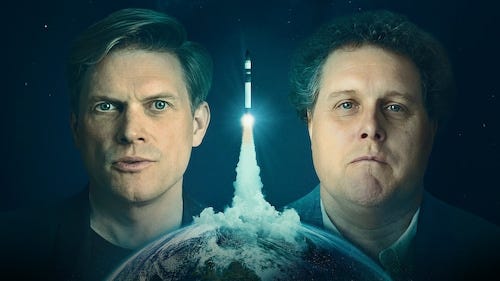
Tycho: Great. Were there moments in your research for any of these companies where something changed your perception of them just completely on a dime?
Ashlee: Elon tried to sue me and destroy my family.
Tycho: After the book?
Ashlee: Yeah, that changed my perception.
Tycho: Are you back on better terms? I know you said that you didn’t speak for years afterwards.
Ashlee: Yeah, we’re all good now. But yeah, that's a good question. When I was working on the SpaceX book, a lot of people still doubted whether Elon actually understood rockets — he was calling himself the "chief engineer," which sounded hard to believe at the time. But when you see him up close, you see the good and the bad: while there are people who know more about rocket science, Elon had genuinely learned a lot and was making real technical decisions. That shifted my perception. Initially, I bought into the public narrative, but being around him changed that. Hanging around Elon also changed how I think about life a bit. He's extremely existential about everything, always pushing this sense of urgency and importance. It made me question whether I was really focusing on the things I cared most about, or just doing too much without prioritizing. I’m not saying everyone should live like that — SpaceX is infamous for burning people out — but it made me rethink how I allocate my energy.
Peter Beck is very straightforward. The guy was born to build rocket engines. Rocket Lab has this Apple-like secrecy that’s rare in aerospace, and Peter is always steps ahead of what he publicly shares. The company’s shift from a rocket company to becoming a full space company — if you look back, he was plotting that for years. I’m not sure that fully answers your question, but those were some of the takeaways from spending time with them.
Anshuk: During my undergrad, around 3-4 years ago, it felt like there was a new small-sat launcher startup all the time. Now I feel like most of them are gone, and everyone’s talking about defense startups. Maybe that’s because of Anduril. What do you think about this, and what do you think the next big aerospace thing is?
Ashlee: Yeah, it’s a big question because a lot is going on. I think you’re really looking at two hype cycles here. People had been chasing the idea of commercial space for so long, but it just wasn’t working. A handful of very rich people tried and failed, and I think when SpaceX started to break through, it rebooted this latent desire, especially for people who had grown up dreaming about space. Suddenly, after SpaceX, people wanted to be the next Elon, and venture capital was flowing into the space sector; you didn’t need to be a government or a billionaire to build rockets. But as expected, a lot of those companies were building very similar small rockets; it didn’t make sense to have 12 versions of the same thing.
I think we’re starting to see a second wave of rocket startups — companies trying different approaches. You’ve got kinetic launch companies like SpinLaunch and Longshot. People are still skeptical, but we are seeing players there. And there is a shift in attention now to mid-size and larger launch vehicles.
And then there’s the defense angle, which is a mix of things. For a while, Silicon Valley was largely against military work, but that’s swung back for a whole bunch of reasons. There’s money to be made, and VCs are funding defense tech again. Companies like Anduril have made that space look attractive. They’re one of the few that are trying to be a prime contractor, not just build a component or a platform. It’s also fueled by the war in Ukraine, the rise of China. The U.S. military knew it needed to modernize before, but had no will to do it. SpaceX’s success helped open up the idea more — it showed that new entrants can handle mission-critical government work, and maybe even do it better than the legacy players.
Anshuk: You've seen a lot of these big space companies like Rocket Lab from early on. What lessons would you pass on to the students here joining an early stage aerospace company?
Ashlee: First off, it’s such an exciting time — you’re all incredibly lucky. In terms of who tends to thrive, it’s often the generalists — the folks who’ve worked across systems like GNC, propulsion. They really understand how the whole machine works, and that makes them incredibly capable. There’s a tradeoff between going to a big name like Starship — which is obviously amazing — versus joining a smaller company where you get to do more hands-on work across disciplines. Early in your career, that breadth of experience is super valuable. Even if it’s not the most well-known company, people in the industry recognize and respect you when you’ve had that “big fish, small pond” kind of exposure. So yeah, that’s probably the best advice I can give.
Anshuk: We had Andy Lapsa (CEO of Stoke) here a couple of weeks ago, and that was his exact point. He was like, you should come join Stoke because there are like hundreds of us, rather than thousands of us.
Ashlee: It's probably quite true, in fact, the closer you could get to like 20 employees, the better, you know? Especially early, if you are confident in your skills, you'll do well. The commercial space probably feels big, but it's a pretty small world, so pay attention to networking because you will see people cycle through companies, everybody knows each other, and they all help each other out. So to the extent that you can, like, take advantage of things like this, or events where you can get to know the people in the industry.
Tycho: Great. Let’s get some audience questions now.
Audience question: What is your take on Chris Kemp? You reported on Astra in your book and featured him in your movie. It seems like Astra is trying to make a comeback too.
Ashlee: Yeah, kind of crazy. I mean, I did not think they would still be around at this point. Things got super dire, and I think they've raised more money. Chris has probably put a pretty good picture of how much more they raised. I suspect they'd probably need more to keep going for a bit. The guy he hired now to run the rocket program, Alan Weston, he's a legend. A pretty serious guy. I don't know, it's always an adventure with Chris. It’s legit, and they are trying.
Audience: Would you buy their products?
Ashlee: I wouldn't buy shares (Note: This is not financial advice). Products? Probably would not be my first choice. I think the thrusters, they were fucked up for a while and now they seem like they're okay.
It's so funny. I mean, he’s had the right intention. All those rocket start-ups at the time would kind of get stuck in perfecting their engineering over the years. Chris came from the software world with a different philosophy; he wanted to run it like a software project, and there’s probably a happy medium in between that he never quite achieved.
So I went to Alaska when they were trying to launch, and then I was there for weeks and weeks and weeks. They rushed the ride there, and then every day there was some new problem; it was hard to get parts, and people were working crazy hours. This thing that was supposed to be quick: light the rocket, throw it away, move on to the next one, ended up dragging on for months and undercut what they were trying to do. So by going too fast, they ended up kind of slowing down.
At least Astra had a different thesis, in terms of manufacturing, going fast, and making it cheap. They had that one launch for DARPA or NASA. Had they been able to string two in a row together, maybe probably would have made it. I know how he comes off in my movie or my book, but he's just unbridled ambition flailing around in the world. I don't think there's anything malicious about it. I do think he sort of believes in what he is presenting and trying to achieve.
Audience Question: What do you think will be the big trends in the space sector, specifically in-orbit industries, in the next 15 years?
Ashlee: I mean, I find it funny. I’ve been covering this stuff for decades now, and nobody ever really provides a very convincing answer to me about what's beyond imaging and communications in lower orbit. Somebody will one day, I am sure, think of lots of ideas. I haven't found anyone who actually has a really good idea, so that does kind of worry me. I see potential in manufacturing in LEO, I can see potential in the data centers in space idea, but I am still pretty skeptical.
As long as Trump keeps going, we're gonna do Golden Dome, and space is going to play a huge role in that. The defense aspect of LEO is only going to increase. It’s probably not like the sexiest thing, but that will happen. We’re also clearly headed toward more lunar activity; it’s just a matter of when and in what form. I think there will eventually be some real industry out there. And then there’s Starlink. I just don’t see the world accepting Elon owning the dominant global communications platform forever. There’s already talk of competitors and alternative architectures, and I think there's a real opportunity for someone to build a more open, universal space-based internet, a platform others can build on. That could be a huge unlock if someone figures it out.
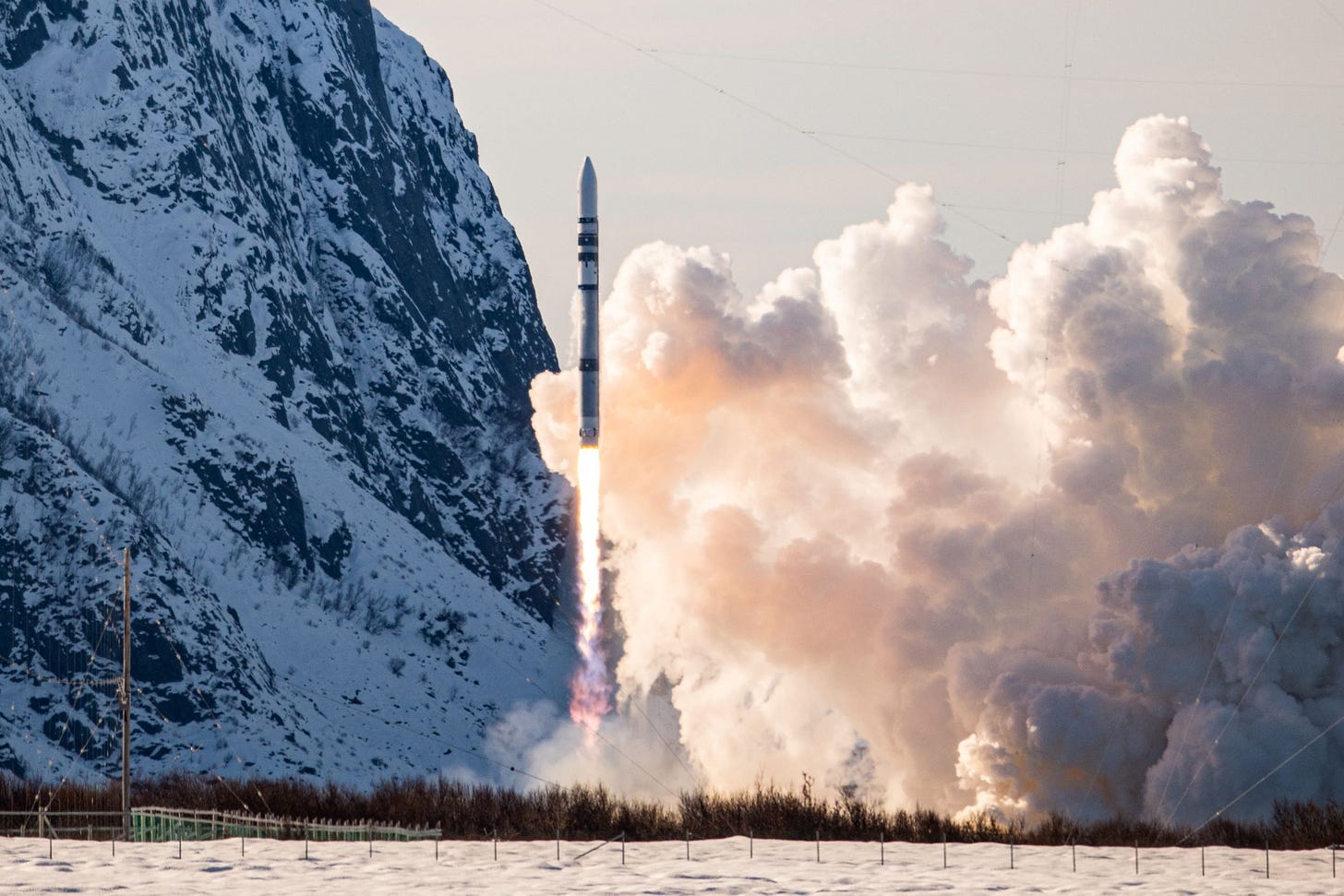
Audience: On the European side, there’s been some activity with Isar Aerospace and RFA, but no major successes yet. Do you see anything coming in the future for Europe’s launch industry?
Ashlee: Europe is in a tough spot. There's satellite stuff, but otherwise you're totally screwed. The European Space Program’s government end is an absolute disaster. I don't even think they have even fully reckoned with what a shit show it is. They completely misjudged SpaceX and are now decades behind on reusability. If they started today, it’d still take them 50 years to catch up.
With the satellite constellations. I mean, there's only gonna be room for so many of the massive communications ones. The US has two going, China's gonna put up one or two. Europe has inherited OneWeb, but the rest of the line-up is currently pretty uncertain.
I think the U.S. and China are now on totally different timelines from the rest of the world — pouring money into AI, biotech, space, and defense. It’s a lot like the Cold War, where two superpowers were racing ahead while everyone else watched from the sidelines. I think the next 10–20 years are going to feel really weird for countries not keeping pace.
And that makes me sad, honestly. I love going to Europe. I’ve met incredible scientists and entrepreneurs there. But I’ve also seen how the system holds them back — university bureaucracies, startup ecosystems that move too slowly, funding that’s hard to come by. I met a guy in Switzerland doing cutting-edge longevity research, and he was stuck in some petty academic fight while trying to spin out a company. I remember thinking: if he flew to California tomorrow, he'd get easy funding by the end of the week. God bless, they have a great work-life balance. But then I contrast that with what I saw in Shenzhen — people at DJI sleeping next to the machines they were building. You don’t have to love that lifestyle, but it shows the intensity and speed some ecosystems are operating at. You are just not seeing that in Europe.
Anshuk: I think that’s all the time we have for today. Let’s thank Ashlee for his time!
Thanks again for checking out this interview with Ashlee. Our goal at The Overview is to continue to share content tailored for students and early career professionals in the aerospace industry. If you enjoyed this article, stay subscribed for more!
Anshuk and Tycho





